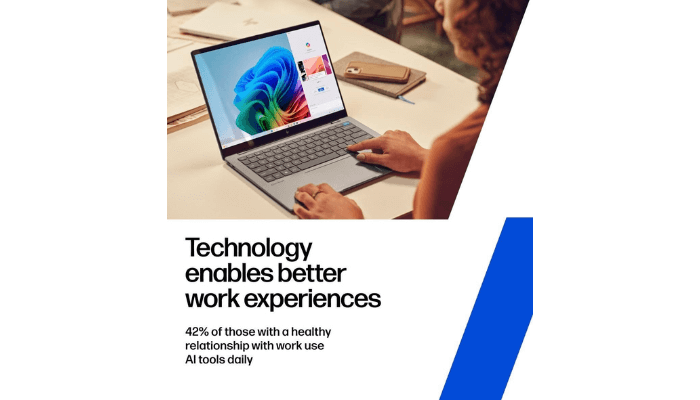Global work satisfaction has plunged to its lowest level since tracking began, according to HP Inc.’s 2025 Work Relationship Index, which warns that burnout, disconnection and waning trust in leadership are defining the modern workplace.
Only one in five knowledge workers now report a healthy relationship with work. That’s down eight percentage points from last year while business leaders themselves recorded the steepest year-on-year drop of 17 points, HP said in the report released on Sept. 30. The findings point to what the company calls a “crisis of connection” across organisations.
Yet, the report also offers hope: about 85 percent of the factors that shape workplace fulfillment such as leadership behaviour, recognition, flexibility, and access to the right tools, remain within an employer’s control.
“Work should enable people to flourish, not just fulfill a financial function,” said Yesh Surjoodeen, managing director of HP Southern Africa.
“Fulfillment isn’t a luxury, it’s a leadership imperative for the health and future of organisations.”
Rising pressures, shrinking trust
The study paints a picture of increasing workplace strain. Roughly 62 percent of desk-based workers said their employers’ expectations have grown, while 45 percent believe profit is being prioritized over people. Only 16 percent of employees trust senior leaders to make the right decisions for their workforce.
Just 44 percent of respondents said their jobs provide a sense of purpose, and less than four in ten feel adequately recognised for their efforts. Those who describe themselves as fulfilled, however, are three times more likely to feel connected to colleagues and achieve work-life balance, HP said.
AI emerges as a bright spot
Artificial intelligence is proving to be one of the few positives in an otherwise grim landscape. Four in ten knowledge workers now use AI daily, and employees with access to AI tools are twice as likely to report a healthy relationship with work.
Still, gaps in proficiency persist. The report finds that only 21 percent of workers describe themselves as AI-savvy, compared with 56 percent of IT decision-makers.
Companies that invest in AI access and training see measurable gains in optimism, productivity and retention, HP found.
“The connection between fulfillment and performance has never been clearer,” Surjoodeen said. “When employees feel valued and supported, they’re more connected, creative and committed — all of which fuel business growth.”
Generational shift
Gen Z and Millennials, now the majority of the global workforce, are pushing for change, demanding purpose-driven leadership and flexibility.
More than half of Gen Z employees reported having a side hustle, and 80 percent said they would sacrifice part of their salary for greater autonomy and flexibility.
These younger workers are also leading AI adoption, signaling that the future of work will be shaped by their digital fluency and insistence on values-led management.
The HP Work Relationship Index 2025 surveyed 18,200 desk-based workers across 14 countries, including the U.S., U.K., India, Germany, Brazil, and South Africa, comprising 14,000 knowledge workers, 2,800 IT decision-makers, and 1,400 business leaders.
HP’s findings suggest that while global work fulfillment is at historic lows, the solution remains largely in the hands of employers — through leadership that prizes recognition, inclusion, and innovation over short-term profit.

